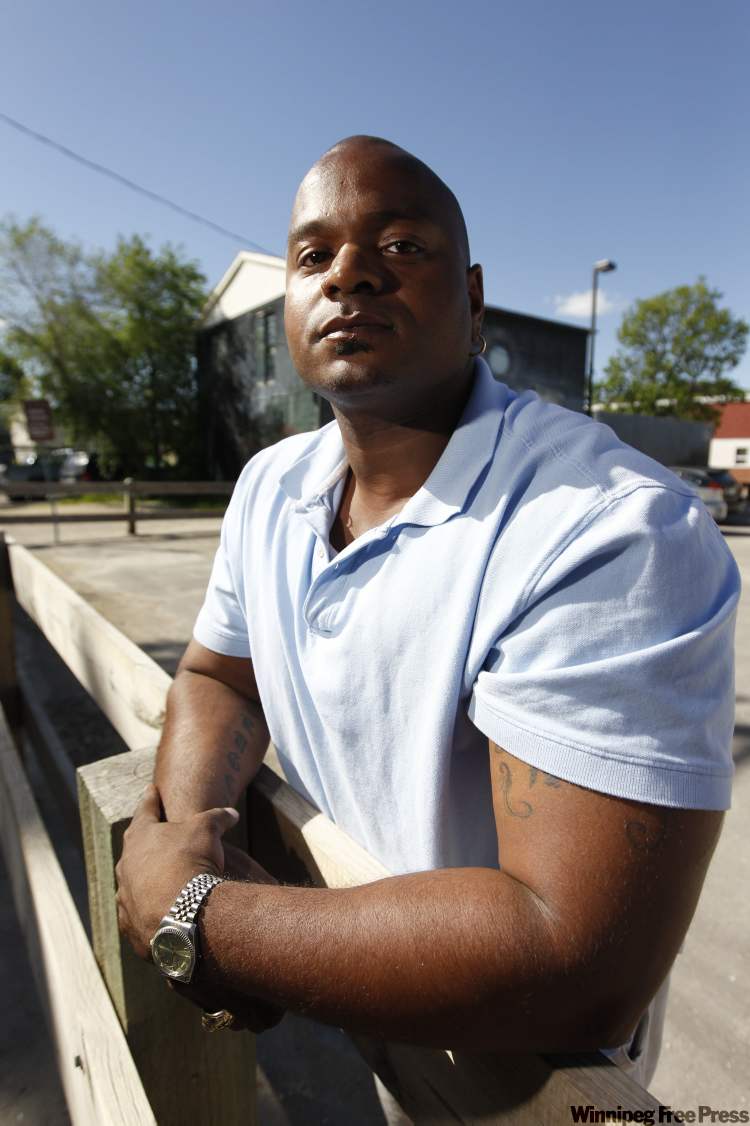‘They’re not the Hells Angels’
Basic needs fuel gangs, activist says
Advertisement
Read this article for free:
or
Already have an account? Log in here »
To continue reading, please subscribe:
Monthly Digital Subscription
$0 for the first 4 weeks*
- Enjoy unlimited reading on winnipegfreepress.com
- Read the E-Edition, our digital replica newspaper
- Access News Break, our award-winning app
- Play interactive puzzles
*No charge for 4 weeks then price increases to the regular rate of $19.00 plus GST every four weeks. Offer available to new and qualified returning subscribers only. Cancel any time.
Monthly Digital Subscription
$4.75/week*
- Enjoy unlimited reading on winnipegfreepress.com
- Read the E-Edition, our digital replica newspaper
- Access News Break, our award-winning app
- Play interactive puzzles
*Billed as $19 plus GST every four weeks. Cancel any time.
To continue reading, please subscribe:
Add Free Press access to your Brandon Sun subscription for only an additional
$1 for the first 4 weeks*
*Your next subscription payment will increase by $1.00 and you will be charged $16.99 plus GST for four weeks. After four weeks, your payment will increase to $23.99 plus GST every four weeks.
Read unlimited articles for free today:
or
Already have an account? Log in here »
Hey there, time traveller!
This article was published 28/05/2010 (5666 days ago), so information in it may no longer be current.
Melissa Omelan’s job description is both daunting and critical for a city rocked by a wave of violent gang-related crime.
She’s the one leading a program that works with the prime targets for gangs, kids who sell drugs or carry weapons like hammers.
Under her watch are two dozen teenagers who are currently in gangs or at risk of joining. Her mission is to keep them for joining, or if they are already in a gang, get them out.

The project co-ordinator of Ndinawe’s Turning the Tides gang-prevention program doesn’t portray the teenagers in the program as "angels."
However, she says many Winnipeggers don’t comprehend that gang involvement is a way for impoverished teenagers to meet their basic needs. About 60 per cent of the kids she works with are actively involved in gang life, many through their families.
"People don’t understand the pressures… we ask these kids ‘leave your gang’ but we’re asking them to isolate themselves from their communities and their families," she said.
"That’s a really hard thing to ask a kid to do, because when they do that, then what? What do we do with them? Where do they go? Who’s their support system?"
Ndinawe, at 472 Selkirk Ave., is in one of the city’s most impoverished areas. The program works with kids aged 14 to 19 years old for months or years teaching them employment or life skills.
The program has three other staff members, including 35-year-old mentor Matt Kelly, who stresses that gangs don’t attract "bad kids."
The program brings in speakers, and helps kids set up with legal appointments.
"It’s very environmental," he said.
Omelan said jailing kids in their teen years only makes them "better criminals" after they’re forced to live in a survival-of-the-fittest environment.
Omelan said teens who are dealing small amounts of crack cocaine or marijuana to make money for groceries, clothes or their sibling’s diapers don’t have an immediate solution if they leave.
"I think poverty’s a huge issue.
I think that a lot of these kids, there’s this conception that aboriginal street gangs are ruining Winnipeg, and they’re at the core of everything bad in the North End, and really, when we talk about crime, we’re looking at pettiness," she said.
"They’re not the Manitoba Warriors or the Hells Angels, who are moving huge amounts of drugs, who are trafficking women. A lot of these kids, it’s how they’re taught to met their basic needs or help their families meet their basic needs."
In the gang hierarchy, they’re likely to be the lower rungs of the organization, known as "strikers" in street slang.
"They’re usually selling minimal amounts of drugs for someone else, or their family is heavily connected and they’re kind-of on the outskirts," she said.
Teens who choose to distance themselves lose the physical protection a gang offers, which was part of the initial allure. She said the vast majority of teens in the program who carry weapons like hammers do so for protection, not to maliciously hurt others.
"(Take) a youth who’s trying to do the right thing, and take his bus to school, getting jumped and having his head smashed into the concrete," she said.
"You’re not only facing the retaliation of the gang you’re leaving, but there’s still people from opposing gangs who may feel you’re still connected so now you’re dealing with it from two sides."
gabrielle.giroday@freepress.mb.ca


